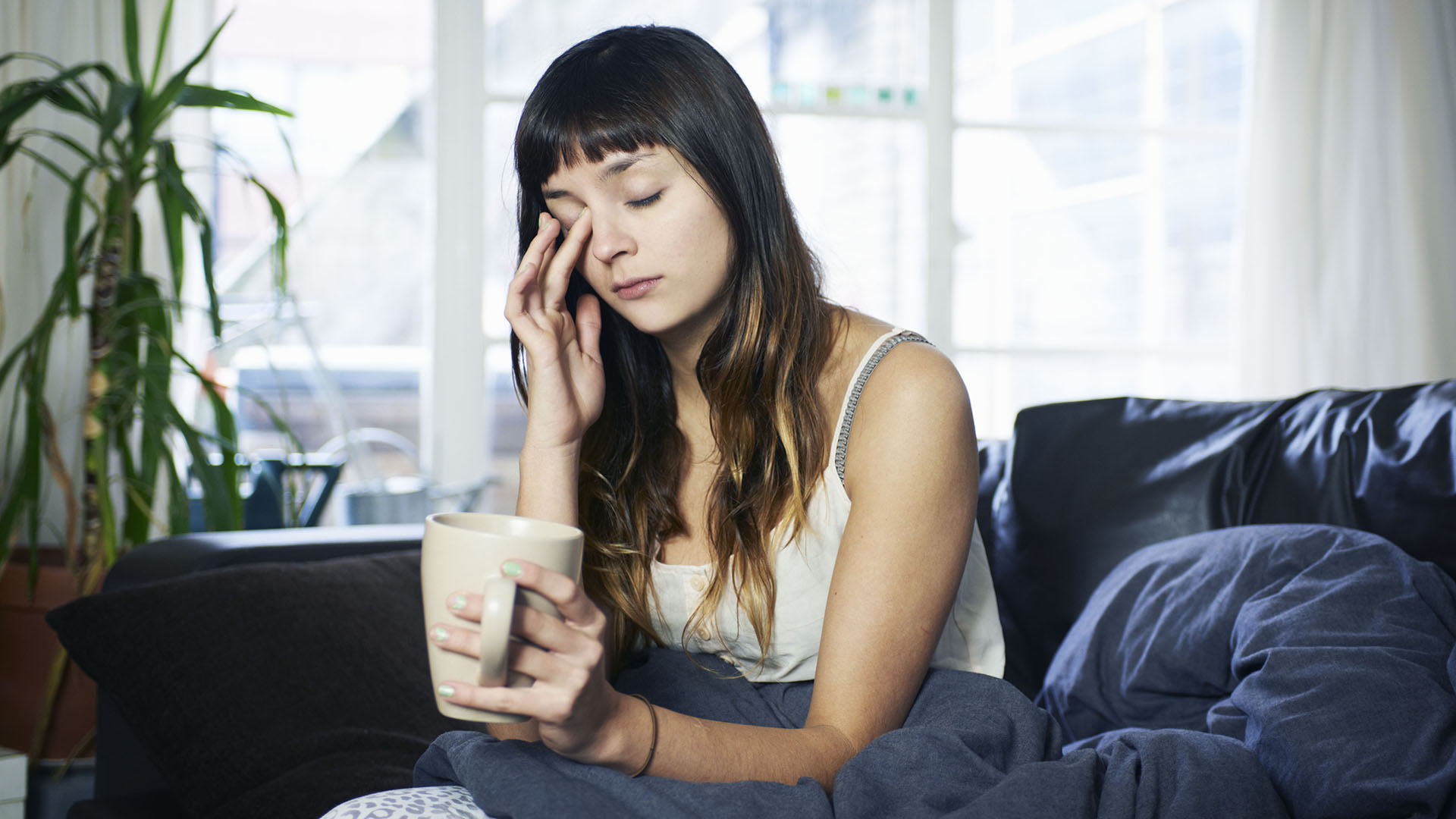
Healthy adults generally require between 7 - 9 hours of quality sleep. However, approximately 1 in 3 American adults admit to regularly getting less sleep than they need. This can lead to sleep deprivation. Wondering if you have all the symptoms of sleep deprivation? One bad night might be easy enough to shake-off, but when you're regularly missing out on sleep, you might start to feel like you'll never be fully rested.
Common sleep deprivation symptoms include feeling tired during the day, but other signs can be harder to spot. For advice on recognizing the signs and symptoms of sleep deprivation and how to manage it, we spoke to Dr Lindsay Browning, leading sleep therapist, neuroscientist, chartered psychologist, author and CBT-i practitioner at Trouble Sleeping.
Sleep deprivation is generally treatable, but long-term sleep deprivation needs more than just one decent night’s rest to get your sleep back on track. Without doing so can impact your physical and mental and mental health.
What is sleep deprivation?
Sleep deprivation occurs when a person doesn't get the amount of rest that their body needs. "Sleep deprivation can have a significant impact on both physical health and mental wellbeing," explains Dr Browning. An adult requires roughly eight hours sleep a night and during this time the body refreshes and restores itself. When you lack quality sleep, your body misses out on this important downtime.
There are two different types of sleep deprivation: short-term and long-term. Dr Browning explains that short-term sleep deprivation happens when you experience a limited period of sleep loss "such as when you spend an uncomfortable night on an overnight flight and don’t sleep on the plane."
But long-term sleep deprivation is a cumulative effect, and as Dr Browning explains, it can happen when you go through "weeks or years of regularly not getting sufficient sleep." Those suffering with long-term sleep deprivation might not even realize they're missing sleep, as they start to consider being tired their new normal.
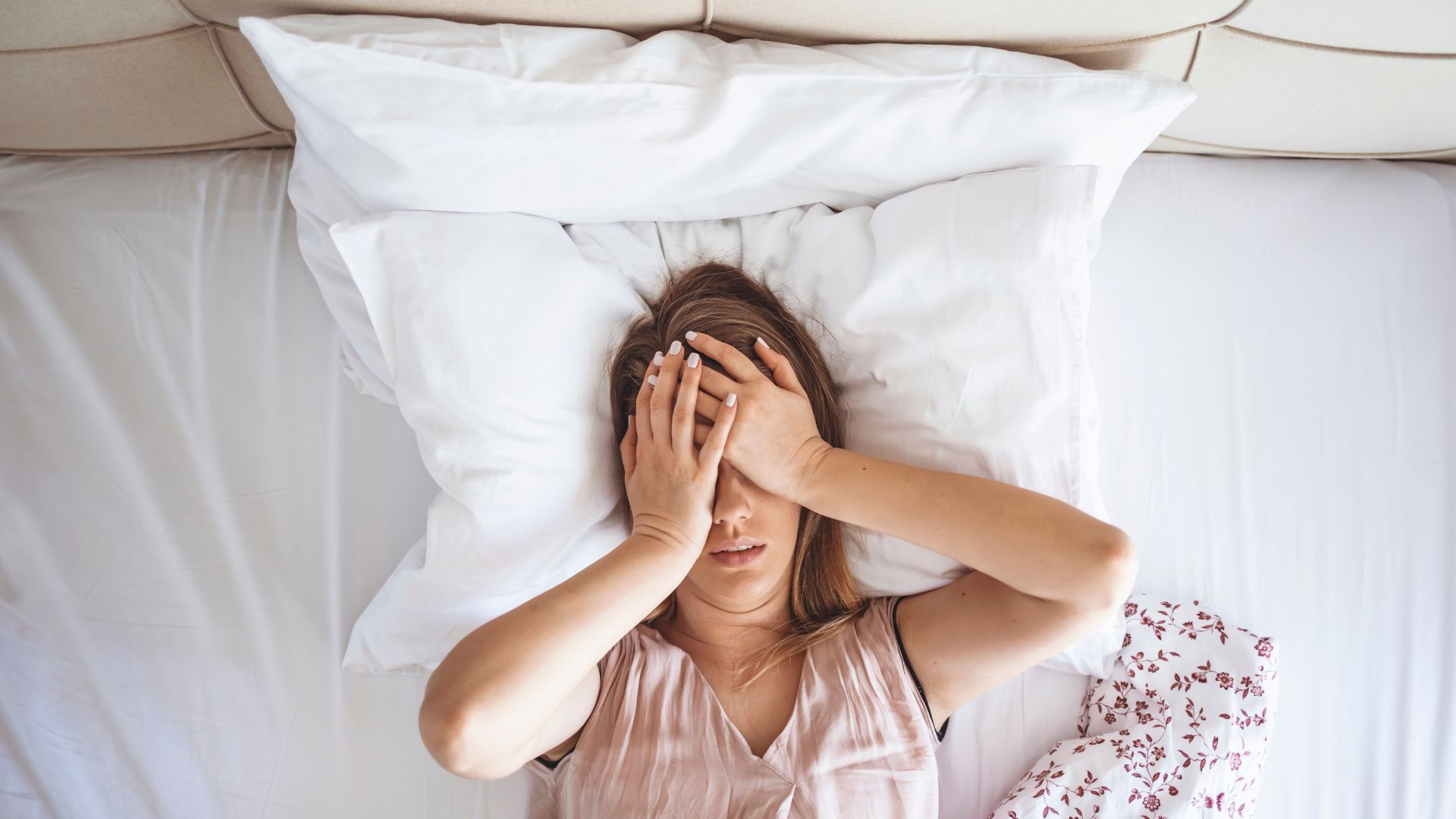
5 signs that you're sleep deprived: Key symptoms to look for
"Short-term sleep loss may be easier to spot compared to that caused by frequent nights of insufficient sleep, since people who regularly don’t get enough sleep may get used to feeling tired and not realize the health implications of sleep deprivation and how much better they might feel if they got enough sleep," explains Dr Browning. Here are some key signs of sleep deprivation to watch out for...
1. You feel fatigued (even after sleeping well)
One of the clearest signs of sleep deprivation is that you're feeling tired during the day even after sleeping well the night before. "If you have been getting too little sleep regularly, then one night of the recommended seven to nine hours' sleep will not be enough to make up for the long term sleep deprivation," says Dr Browning.
"You may be feeling sluggish and tired during the day, even if you got enough sleep the night before. You may feel mentally tired, physically tired, or both." So while you might expect to feel tired on Monday morning, you're also sleepy after that Sunday lie-in.
2. You nod off during the day (microsleeping)
Ever been sitting in a meeting and you suddenly realize you don't remember what just happened? You might have been experience a microsleep; a short period of drifting off that many people don't notice happening until they can't recall the last few seconds. Microsleeps are a common sign of sleep deprivation and, as Dr Browning explains, they're more than just a harmless nap at your desk...
"People who are sleep deprived can experience nodding off while sitting, or feeling their eyes close and having a microsleep while doing something like driving a car," says Dr Browning. "Microsleeps and sleepiness during the day can be extreme dangerous since a lack of sleep has been associated with an increase in car accidents due to people falling asleep at the wheel or due to reduced reaction times."
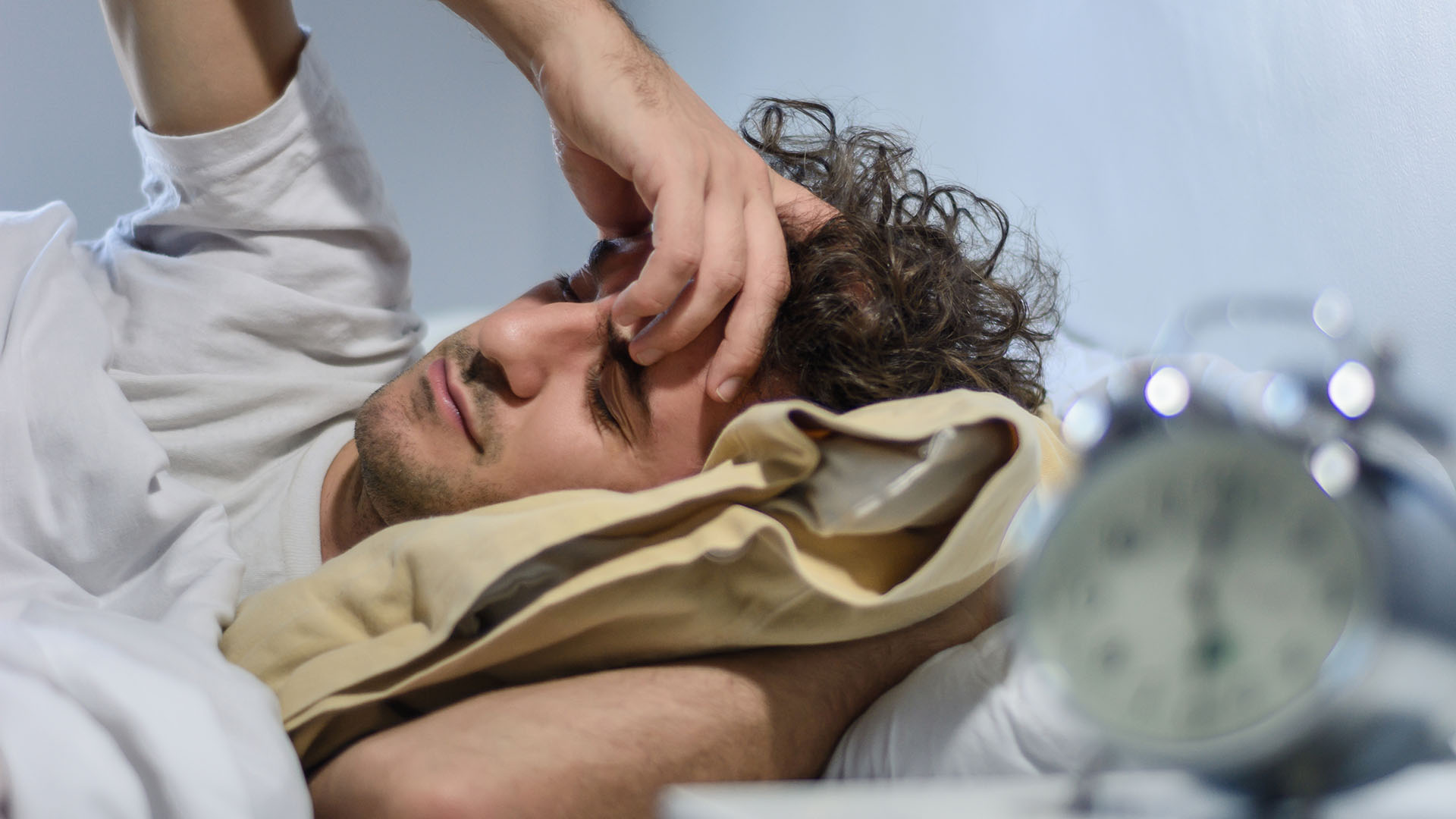
3. You can't concentrate
A groggy Monday morning is something most of us are familiar with, but if that feeling lasts throughout the week, it could be a sign of sleep deprivation. "People who are sleep deprived tend to struggle to focus on tasks, experience memory lapses, and have reduced cognitive abilities," explains Dr Browning.
And it's more than just a tendency to daydream that you might be experiencing. "One study found that one night of sleep deprivation was equivalent to having a blood alcohol concentration of 0.05% – the equivalent of having two standard alcoholic drinks."
4. You're eating and snacking more
In the same way we tend to choose ice cream over iceberg lettuce when feeling sad, a lack of sleep typically has us reaching for fatty foods. "This is due to disrupted hunger hormones (ghrelin and leptin) which are regulated during sleep," explains Dr Browning.
A study found that people who are lacking sleep eat on average 385 calories more during the day than those who slept well. When you aren't sleeping, your body misses out on a crucial period for hormone regulation – and you'll see the effects of that in your behavior the next day. As in, a tendency to reach for the cookie jar.
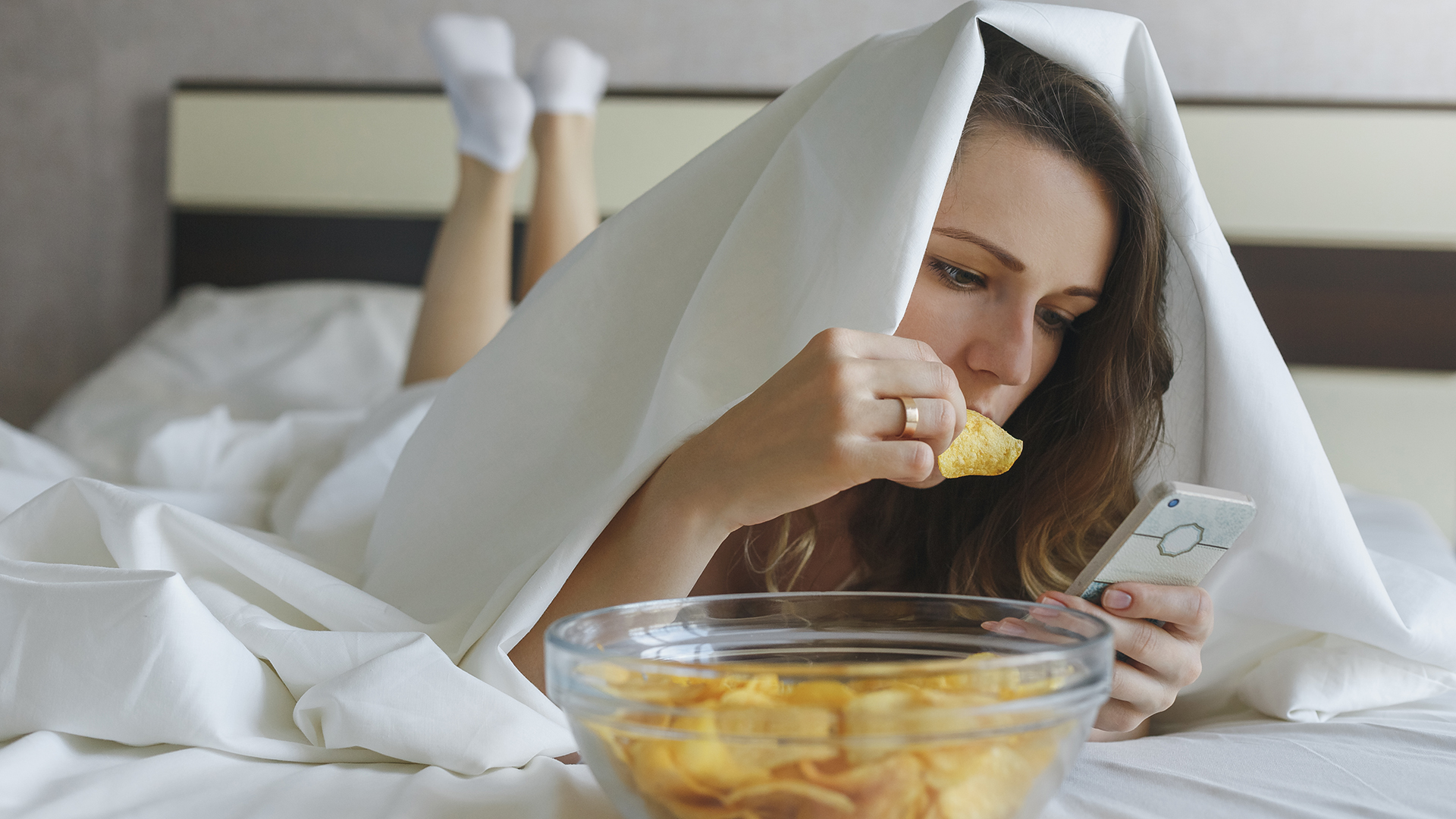
5. You're more susceptible to illness
Getting enough sleep is important to maintaining good mental and physical health, so it follows that sleep deprivation has a negative effect on your overall wellbeing, as Dr Browning explains.
"Sleep deprivation can be associated with increased headaches, muscle aches, and also a weakened immune system leading to more frequent illnesses." For those with long-term sleep deprivation, feeling less than your best might not seem like anything new – but it could be a crucial signal you're lacking rest.
6. You're experiencing more headaches
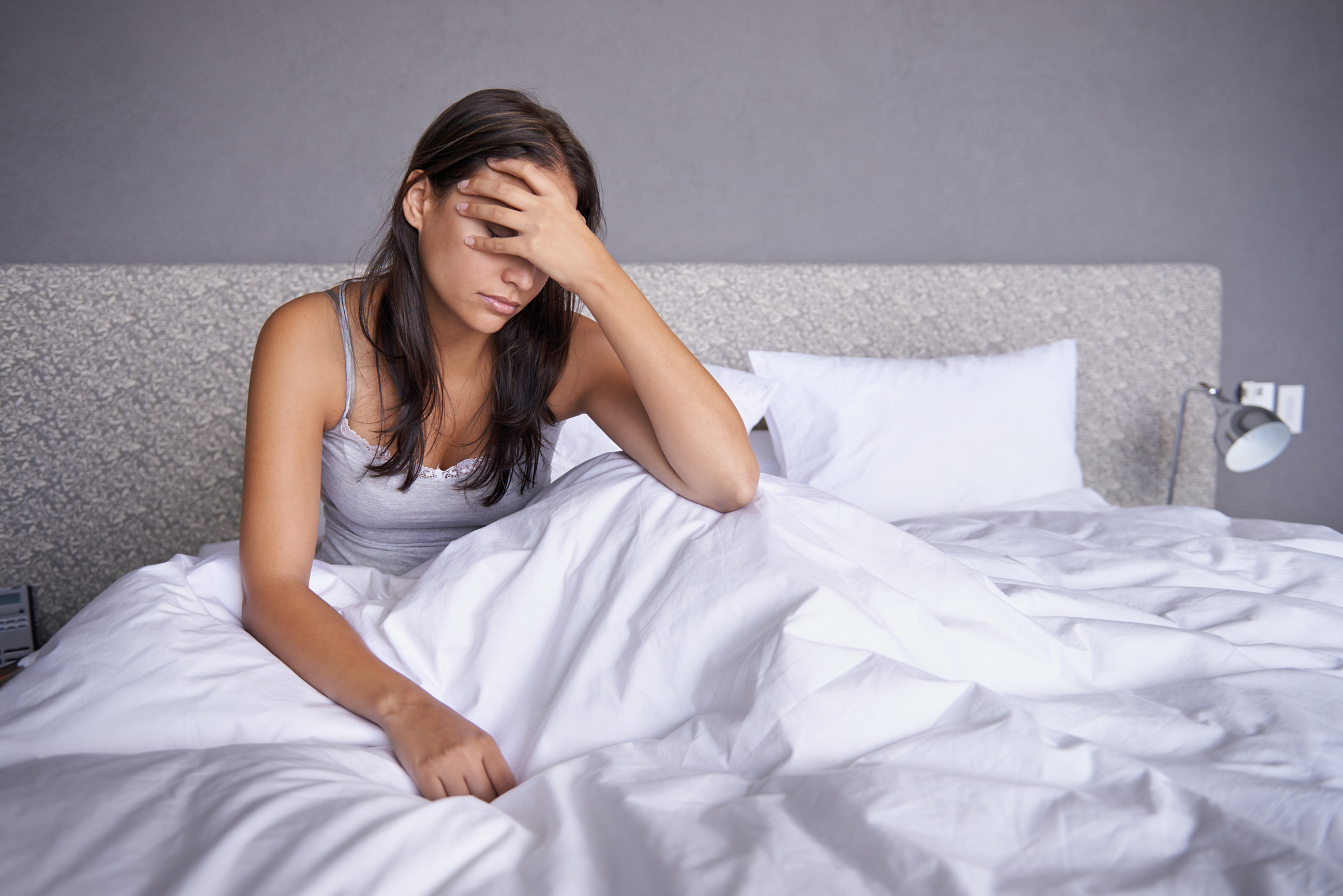
Whether it’s a cluster headache, tension headache or migraine, an increase in the frequency and severity of headaches is another common symptom of sleep deprivation. Migraines in particular can be triggered by lack of sleep, with studies linking the decrease in melatonin with the onset of migraines.
Sleep is crucial for your body to rest and repair itself. When you become sleep deprived, there's a decreased neural plasticity in the brain - this means the brain isn't functioning at its optimum. These less-regulated neural pathways can result in headaches.
7. You're irritable
Functioning on less sleep than you need can be frustrating. But if you're struggling with low moods, irritability, stress and anger, sleep deprivation is likely to blame. Why? Again, this is down to the change in brain activity due to a build up of poor sleep. Without adequate rest, it's harder to control negative emotions, like fear and sadness.
Can you fix sleep deprivation?
It is possible to fix sleep deprivation – even long-term sleep deprivation – although one good night's rest isn't enough to solve the problem. To overcome sleep deprivation, Dr Browning recommends focusing on improving your sleep hygiene: creating a bedtime routine, sticking to consistent sleep and wake-up times, and optimizing your bedroom for relaxation.
However, if you've cleaned up your sleep hygiene and you're still struggling to achieve quality sleep, Dr Browning advises seeking medical advice. "If you have tried improving your sleep hygiene, but still feel sleep deprived, then you should speak to your doctor in case there is something else is causing your fatigue.
"Most common causes of this are sleep apnea which can disturb the quality of your sleep, or an iron deficiency or a thyroid issue which can cause tiredness even if you think you have had enough sleep."
How to fix sleep deprivation
To fix sleep deprivation, it's important to create habits that will result in consistent and long-term better sleep. Below are the steps recommended by Dr Browning if sleep deprivation is affecting your health and wellbeing...
1. Stick to a consistent sleep schedule
Humans are creatures of habit and our circadian rhythms love the routine of going to bed and waking up at the same time every day of the week. This teaches the body when to feel sleepy, which in turn helps you to drift off.
"Set a regular bedtime and wake time, seven days per week, to help regulate your internal clock," advises Dr Browning. And that includes weekends and holidays. "Sleep deprivation may be caused by not getting enough sleep during the week and thinking you can catch up at the weekend, but it’s much better for your health and sleep to get enough sleep every day – seven days a week – as long as your life so circumstances allow."
As well as establishing long-term good habits, keeping an early wake-up time can be one of the best ways to fix your sleep schedule after a late night. By waking up early you're more likely to feel tired early, getting your circadian rhythm back on track.
2. Cut out caffeine in the afternoon
If you're worried about sleep deprivation then you probably aren't reaching for a pre-bed cappuccino – but you might be relying on a coffee fix to get you through a drowsy afternoon. However, your lunchtime latte might be the reason you're struggling to sleep in the evening, as caffeine can remain in the body for many hours after consumption.
The 10-3-2-1-0 sleep method advises cutting out caffeine 10 hours before bed, but Dr Browning has a slightly more achievable suggestion. "As a general rule, avoid caffeine at least six hours before bedtime. Caffeine is a stimulant and can interfere with falling asleep as well as disrupting sleep quality."
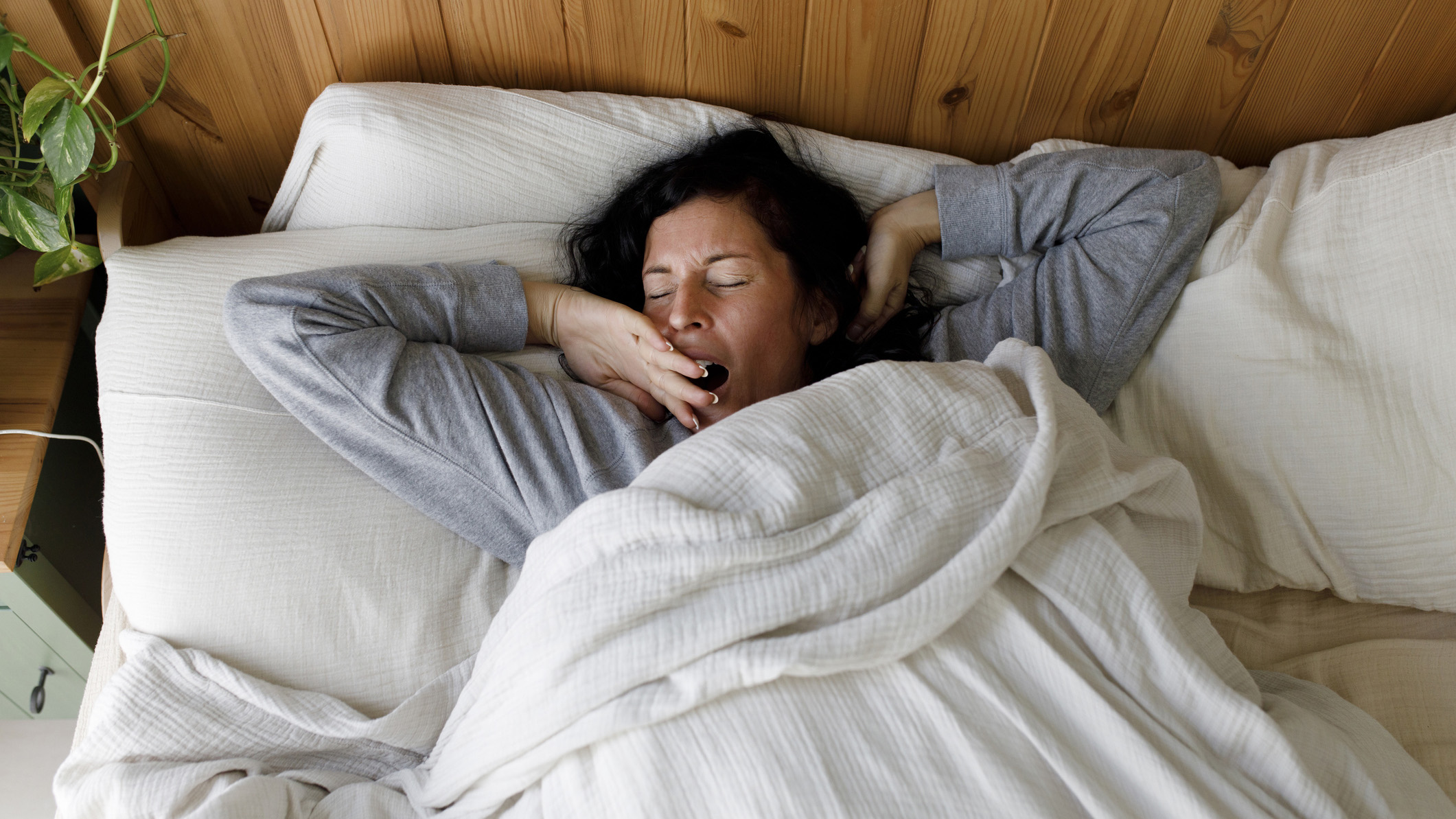
3. Engage in a relaxing nighttime routine
Going to bed early doesn't necessarily mean getting more sleep, especially if you spend a long time staring at the ceiling waiting to drift off. However, implementing a relaxing nighttime routine can prepare the mind and body for sleep, meaning when you do crawl beneath the covers, you're likely to drop off quickly.
"Spend 30 minutes to an hour before bed doing something calm and relaxing such as read a good book, do some meditation, have a warm bath or do some gentle stretching or yoga," advises Dr Browning. "This helps signal to your body that it's time to calm down and get ready for sleep."
Dr Browning also recommends putting screens away at least an hour before bed, to limit the disrupting effects of bright lights. But if you absolutely can't stay away from your phone, she has a tip: "Ensure night mode is activated to reduce the brightness and reduce the blue light frequency which is especially damaging to sleep."
4. Get active outside during the day
It isn't just what you do at night that affects how well you sleep. Your daytime activities can also contribute to sleep deprivation, as Dr Browning explains.
"Exercise during the day is good for your physical health and mental health as well as helping boost your alertness during the day and potentially helping you sleep better at night. However, avoid vigorous exercise close to bedtime."
In addition to staying active, try to get outside during the day. "Natural daylight can help you feel more alert and awake during the daytime, and also help you produce melatonin and sleep better at night," advises Dr Browning.
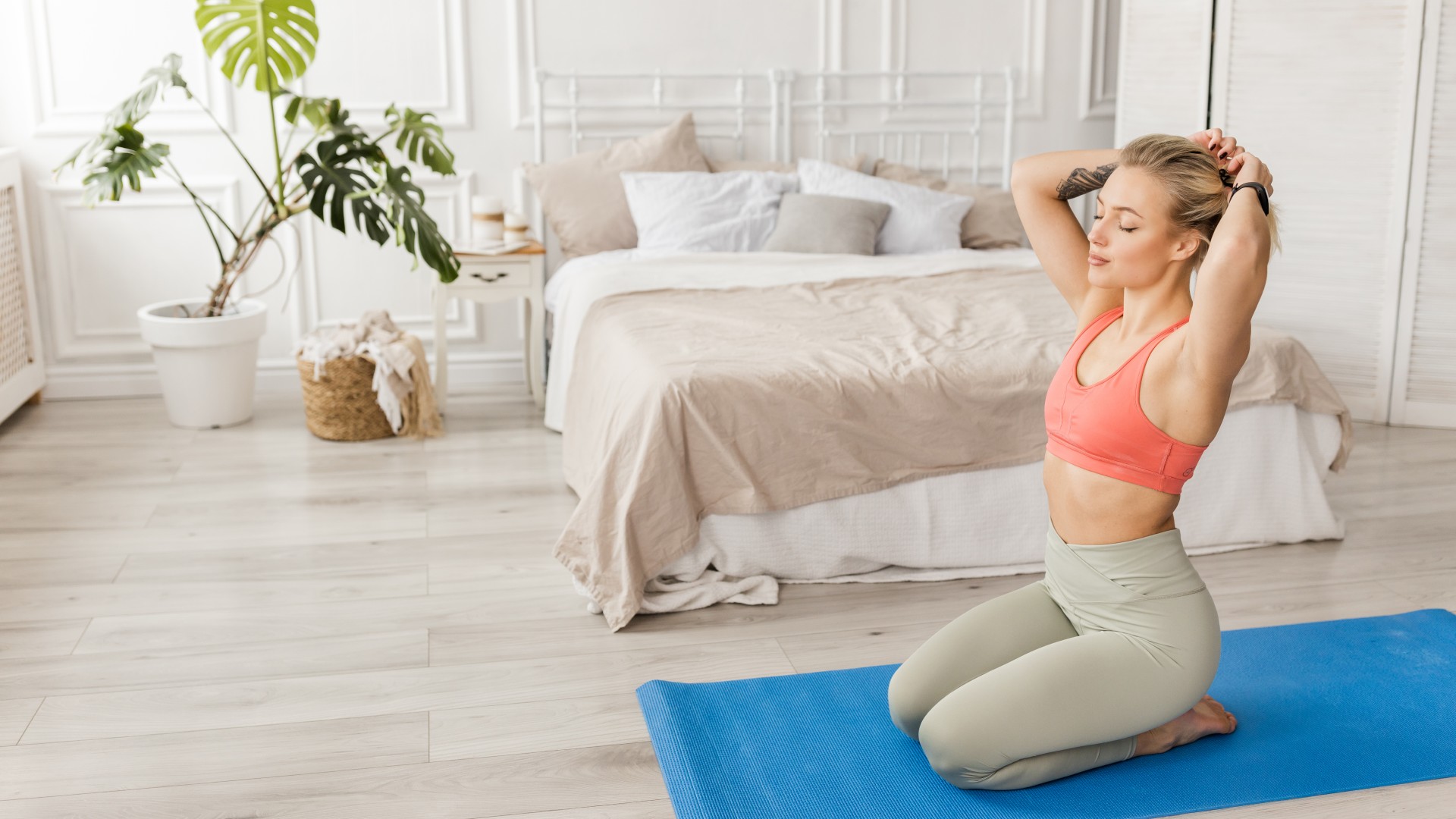
5. Use naps and lie-ins wisely
"There are some circumstances when you simply can’t get enough sleep at night. In which case, let yourself have a lie-in at the weekend to catch up on some missed sleep." But try not to make this a regular habit, as you might find yourself suffering from social jet lag – when your weekday body clock and weekend body clock are out of sync.
Naps can also be used to boost energy levels if sleep deprivation is making it hard to get through the day. "Try taking a short (20 minute) nap just after lunch to top up your sleep," advises Dr Browning. "It is best to avoid napping after about two o’clock as even short evening naps can make it harder to fall asleep when you go to bed."
6. Create a relaxing bedroom environment
"Ensure your bedroom is conducive to sleep by keeping it dark, quiet, and at a comfortable temperature," says Dr Browning. Blackout curtains can be used to prevent disruptive light from getting into your room, while the perfect bedroom temperature is around 68 and 77 degrees Fahrenheit.
Your bed should be providing you with support and pressure relief, so your sleep isn't disrupted by aches and pains. Our best mattress guide and best pillow guide can help you find the best bed for your sleep style and body type.
"If your mattress is more than 8 years old, it may need replacing, since mattresses have a finite lifespan and need to be supportive enough for your spine to help you sleep comfortably," advises Dr Browning. "You should also wash and replace your pillows regularly as they can absorb sweat and dead skin cells which can cause allergies and an uncomfortable pillow"
Upgrading your bed can have a big impact on how well you sleep, and with our Labor Day mattress sales hub, you can find the best deals on mattresses right now.







